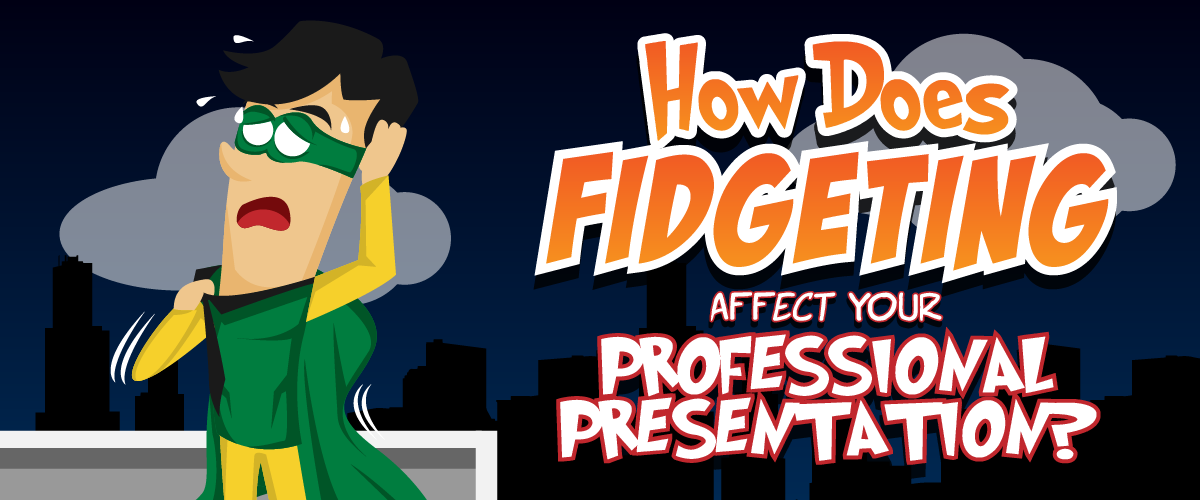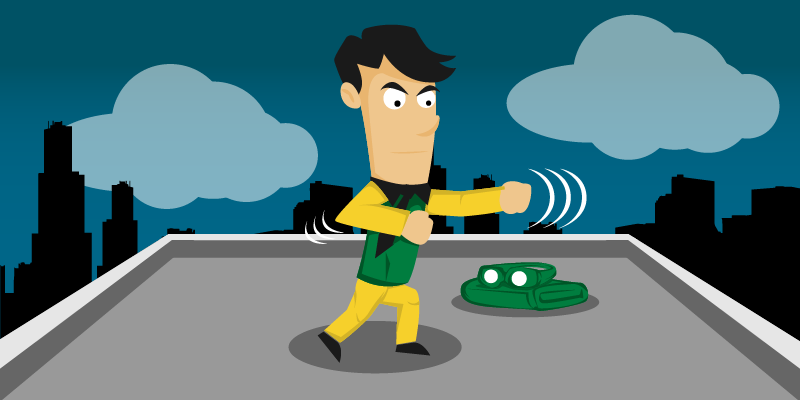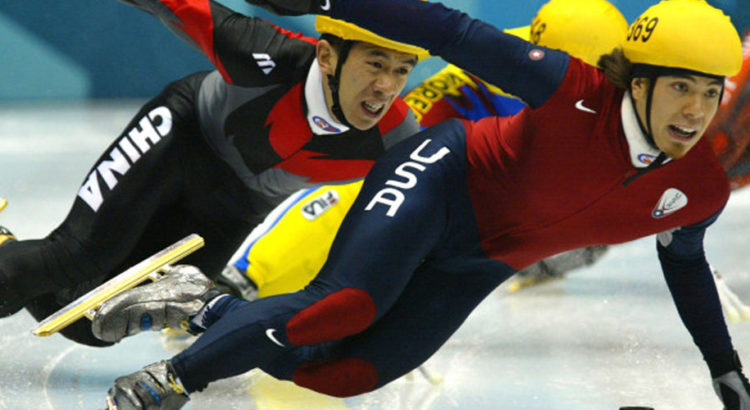Good posture is essential in public speaking because it allows you to project confidence. Slouching, swaying, and moving restlessly will only make you look nervous and unprepared.
Projecting yourself professionally involves cutting off bad habits like fidgeting. If you aren’t aware of how it can affect your performance, you’ll end up distracting and disappointing your audience.
Fidgeting is a display of constant movements that disturb others. In her book, How to Talk to Anyone: 92 Little Tricks for Big Success in Relationships, internationally acclaimed communications expert and motivational speaker Leil Lowndes advises presenters to avoid committing the behavior: “Whenever your conversation really counts, let your nose itch, your ear tingle, or your foot prickle. Do not fidget, twitch, wiggle, squirm, or scratch.”
Fiddling with your notes, playing with your hands, loosening your collar, and gripping the lectern’s corners are only a few examples of this behavior.
Presenters subconsciously fidget when they’re experiencing performance anxiety or stage fright, which trigger stress hormones. Here are a few tips to cut off the bad habit and ace your professional presentation:
Observe Yourself
According to public speaking coach Jacki Rose, body language makes up the biggest part of successful communication. As you rehearse, consider recording yourself to observe how you behave during your pitch. It doesn’t only help you identify what you need to improve on; it also lets you pinpoint what needs to be removed, including unnecessary movements.
Ask your peers to watch you and let them give feedback afterward. Do this several times and review what causes you to commit the same habit. Is it because of technical problems? Did someone from your listeners distract you?
Once you recognize what prompted this act, use your positive habits to counter the negative ones and emphasize your ideas. If tapping your foot on the ground is one of those good habits, start stepping forward when explaining a certain point.
Take Time to Relax
You might think this is common for presenters, but it’s not.
Reminding yourself to relax releases tension and lets you focus on what you need to accomplish. If speaking in front of a large crowd makes you fidget, develop positive self-talk and feed yourself with encouraging thoughts.
Worrying won’t help. Believing in yourself improves your confidence, allowing you to maintain a positive outlook while speaking in public. Never allow fear to overpower your self-esteem. Calm your nerves by breathing deeply to soothe anxiety. With deliberate practice, you can improve your strengths and slowly overcome your weaknesses.
Be Well-Prepared
Whether you’re a skilled veteran or a novice, preparation is still vital for your success. Delivery is more important than well-prepared visuals in achieving an effective presentation.
Preparation involves training yourself. In this case, you’re training to catch yourself fidgeting or projecting unnecessary gestures. Stand in front of a mirror to give you an idea of how you look while presenting.
Once you’re ready, you’ll be more confident to speak and convince your audience to listen.
Stop Fidgeting
You won’t be able to overcome negative behavior without figuring out what causes bad mannerisms. Having a positive mindset will help you move toward achieving self-confidence.
Remember, your audience doesn’t only rely on your presentation’s content. Nonverbal cues also contribute in interpreting your message clearly. Break bad habits by observing yourself, calming your nerves, and being well-equipped to prevent any distractions that can ruin your performance and delay your success.
Resist the temptation to start fidgeting and notice how it makes you a better presenter.
Back up your skills with a well-designed PowerPoint presentation by letting our team to assist and offer you a free quote!
Check out and share our infographic!
References
Lowndes, Leil. How to Talk to Anyone: 92 Little Tricks for Big Success in Relationships. Chicago, IL: Contemporary Books, 2003.
Rose, Jacki. “Body Language – stop your nervous fidgeting!” Public Speaking Can Be Fun, January 8, 2007. www.publicspeakingcanbefun.blogspot.com/2007/01/body-language-stop-your-nervous.html












